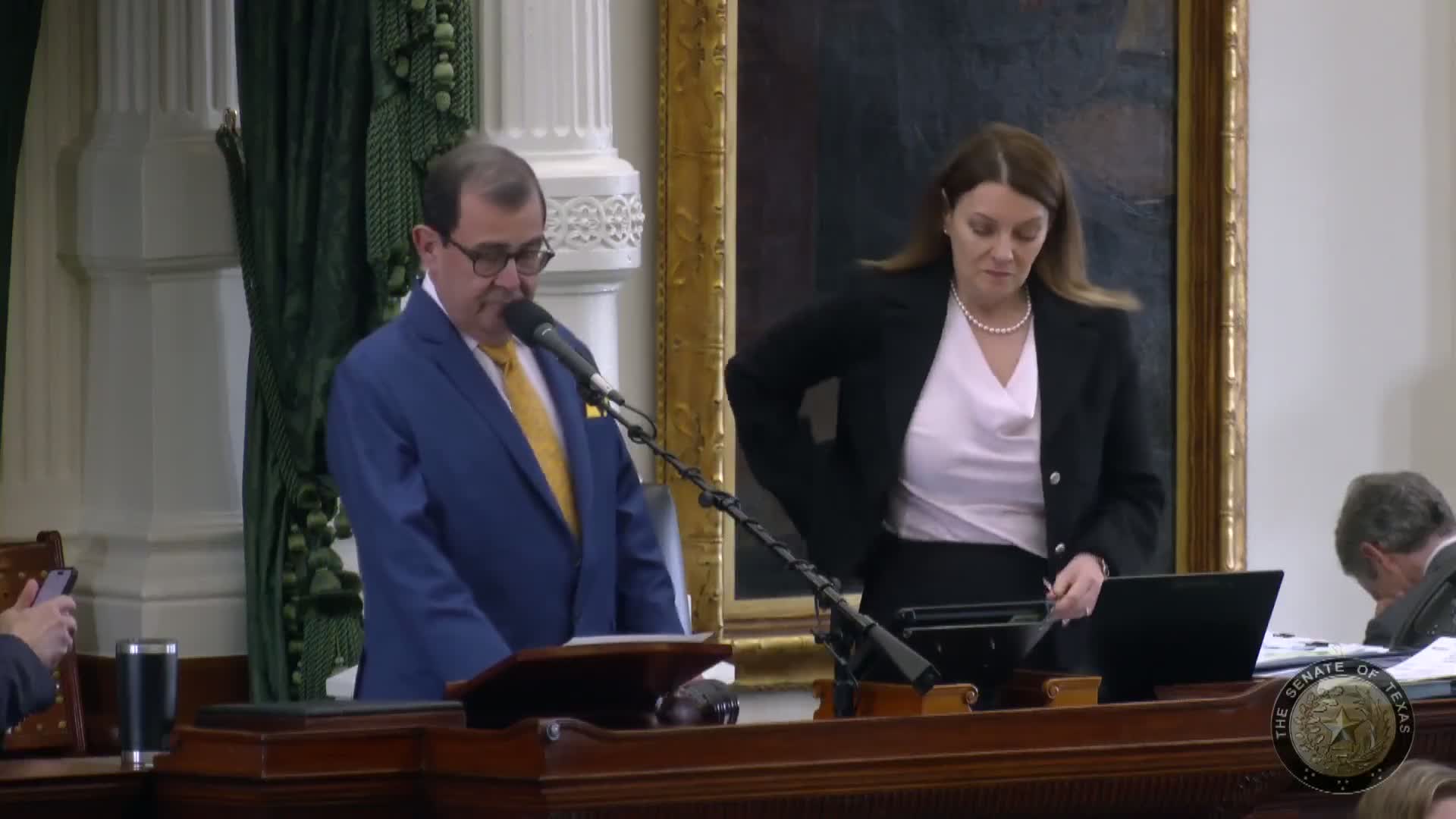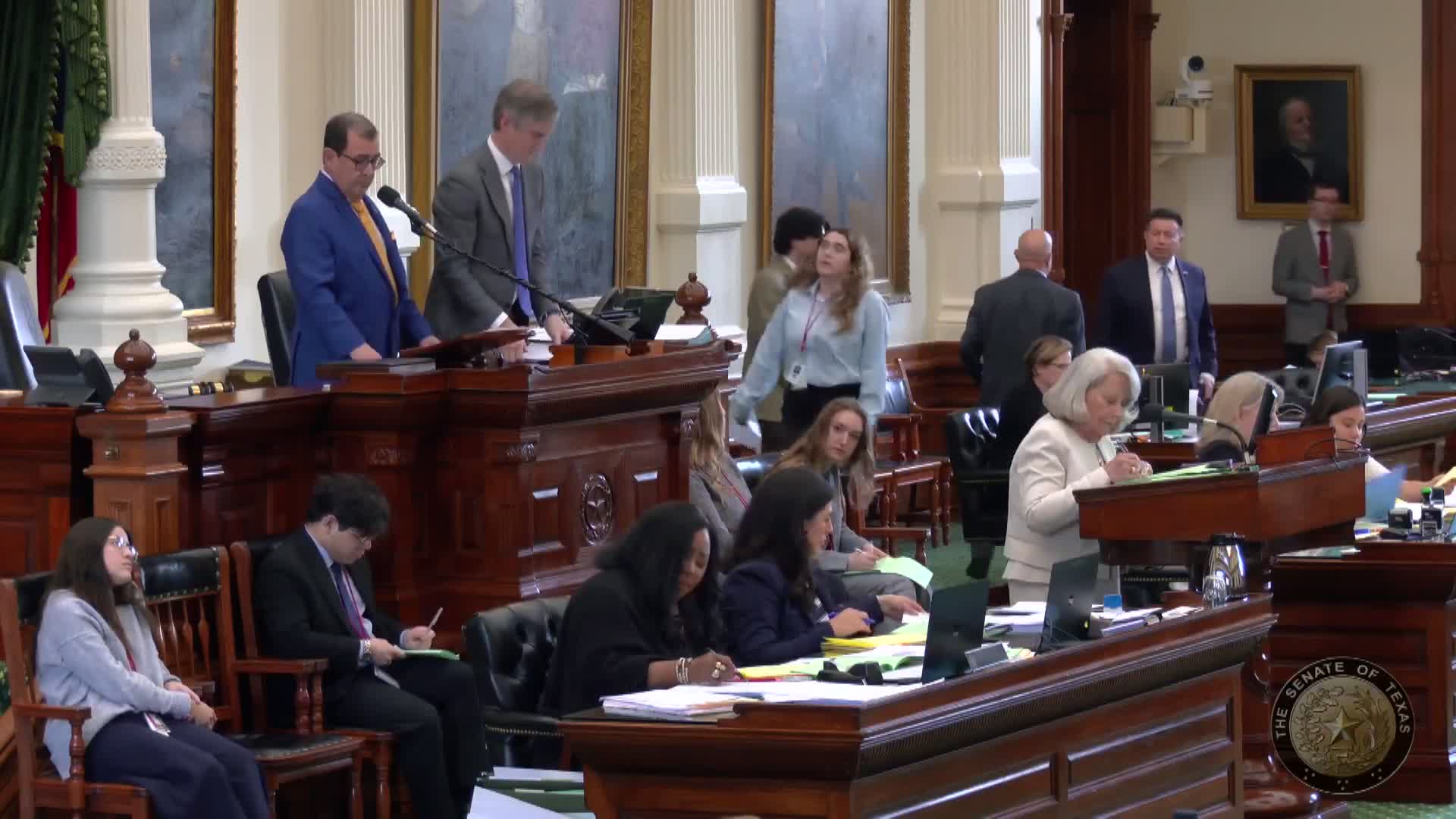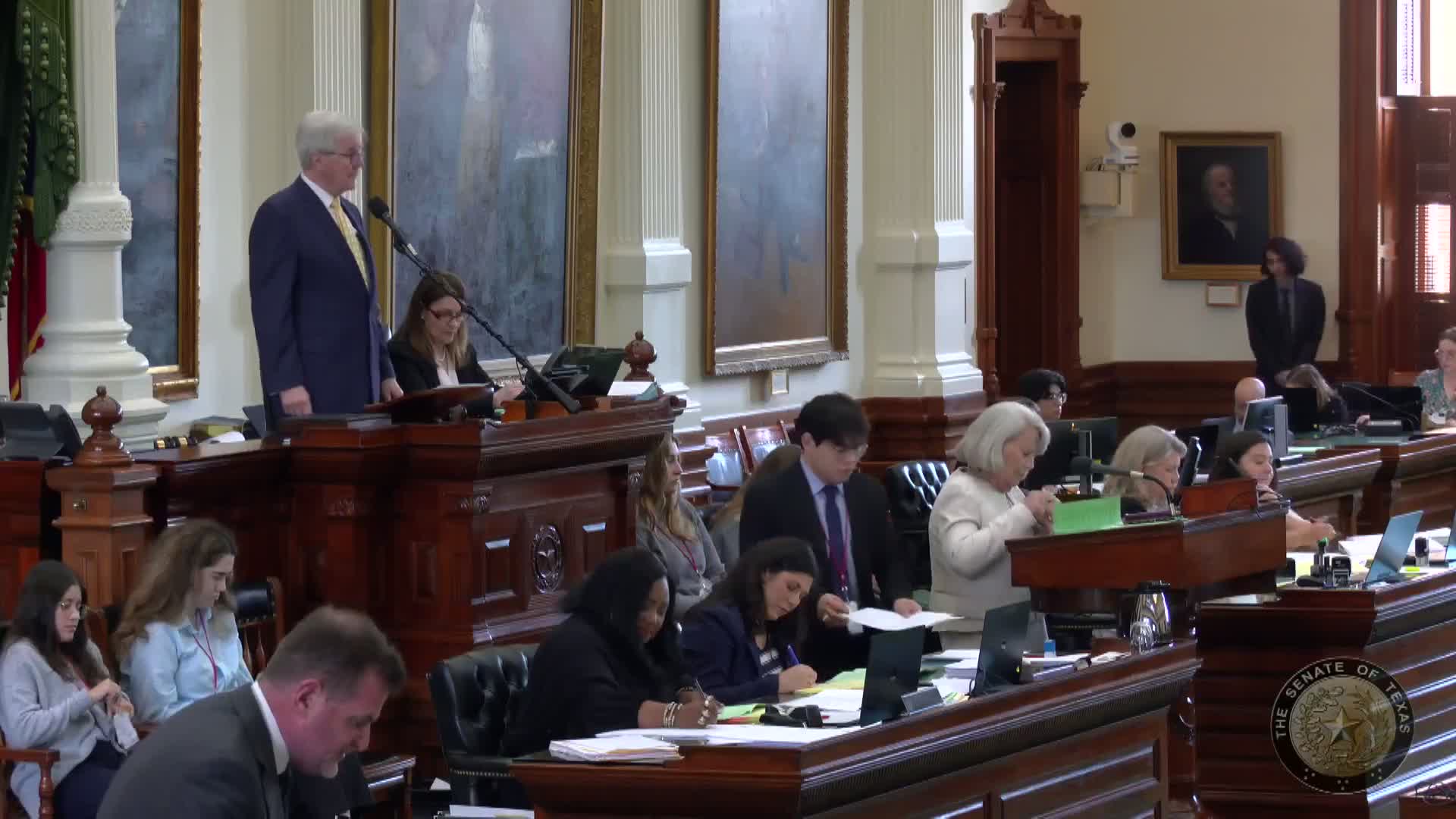Article not found
This article is no longer available. But don't worry—we've gathered other articles that discuss the same topic.

Senate approves conference reports and memorial resolutions during final floor day

Senate adopts election‑procedure change to treat early voting and Election Day as continuous period

Senate adopts conference report limiting some campus protests while reiterating content‑neutral rule

